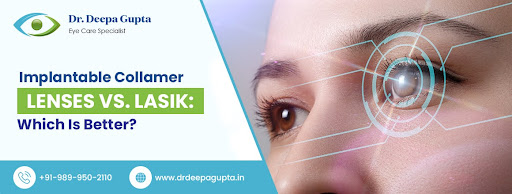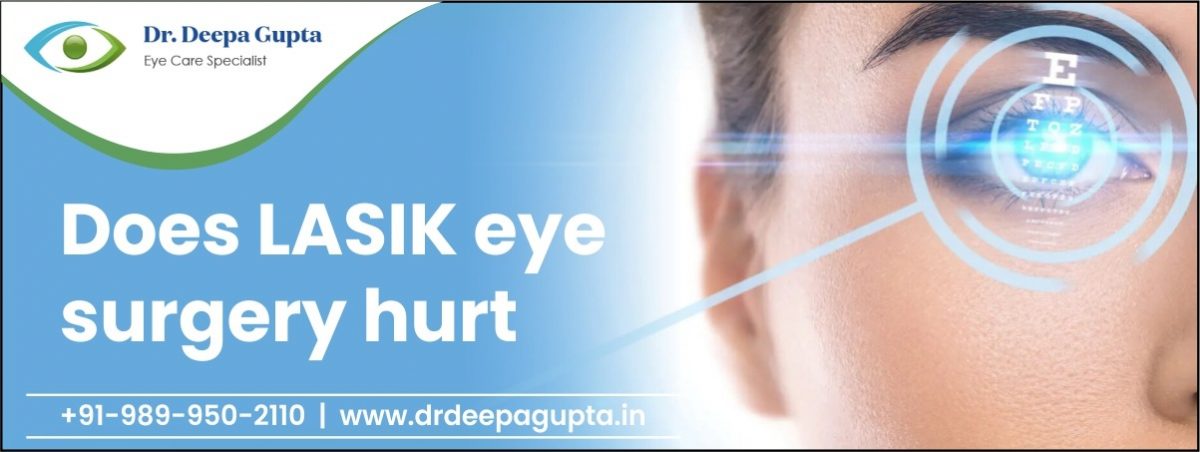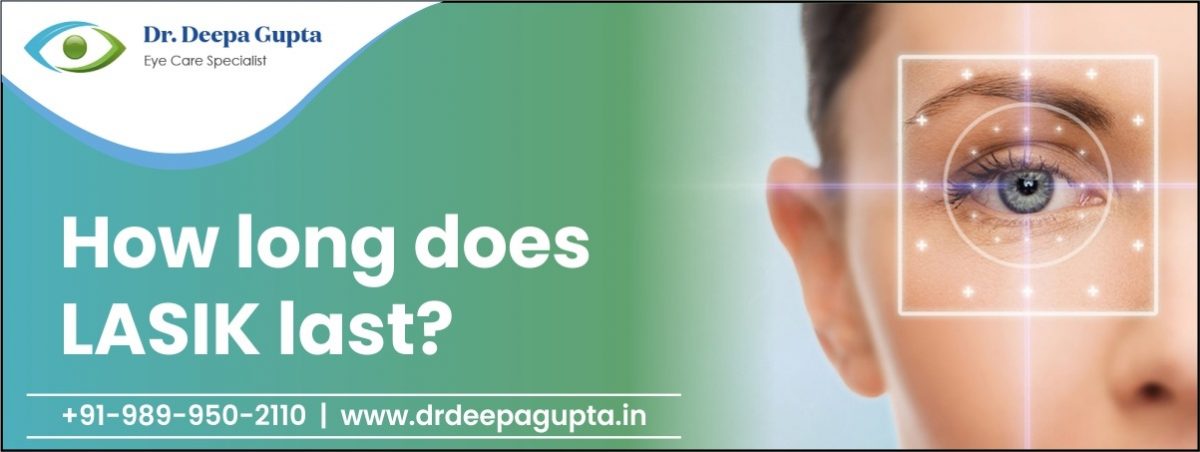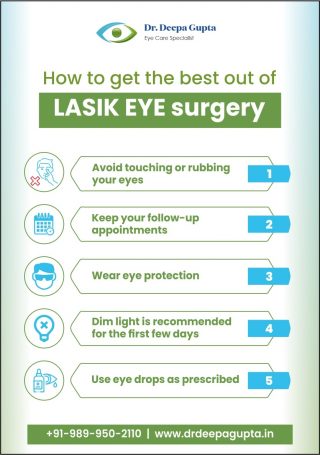Many experience poor vision, which makes it difficult for the eyes to see and understand various colors, dimensions, etc. However, there are many eye treatments available, and the most popular among all are the LASIK eye surgery procedure and the Implantable Collamer lens procedure. The most advanced developments in corrective vision surgery, also known as eye ICL surgery. With this innovation in technology and surgical procedure, the refractive surgery field has widened more. Also, there is another option known as LASIK surgery. You need to know all about them to understand which one is a better option for you.
ICL and LASIK – An overview
ICL or Implantable collamer lens, is a surgery in which a special lens is placed in the eye for vision correction and to make it undetectable to both patient and observers. The synthetic lens is placed in front of the eye’s natural lens in the area behind the iris. It is an intraocular surgery, unlike LASIK, which is a surface technique that requires the removal of flaps of the cornea. LASIK is a laser procedure to remove glasses and is considered the most common refractive procedure, but ICL surgery is also gaining popularity among eye doctors.
ICL and LASIK – The Definition
Implantable collamer lenses are a substitute for LASIK surgery, in which an experienced eye surgeon permanently inserts contact lenses into the eyes. It is a cutting-edge, thin sclera lens that works the same as a contact lens but is surgically placed. It can be retrieved when necessary, requires no upkeep, and cannot be felt in the eye. LASIK eye vision surgery, also known as Laser in Situ Keratomileusis, is done to correct vision for people with astigmatism, nearsightedness, or farsightedness. The surgeon will alter the structure of your cornea with a laser, and it enhances the focus of light on the retina. The main purpose of LASIK surgery is to improve eyesight by correcting your refractive error. It is done to reduce the need for eyewear or corrective lenses and it might also help you to entirely forgo them as well.
- ICL and LASIK surgery – the difference
The major difference between Implantable collamer lenses and LASIK is the type as well as eyeglass amount prescription that can be treated with both procedures.
- However, the FDA has approved ICL to treat many conditions, including nearsightedness, from more moderate to more extreme amounts. Also, ICL has not been approved by the FDA to treat farsightedness or astigmatism. On the other hand, LASIK is approved by the FDA to treat both farsightedness and nearsightedness with or without astigmatism.
- ICL is an artificial lens similar to a contact lens and is implanted in front of a natural eye lens in space behind the iris. So, it is invisible to observers and patients themselves. It is an intraocular surgery approved for correction of moderate to severe myopia. LASIK, on the other hand, is a surface procedure that needs removal of part of the cornea. It is among the most common refractive surgery for the removal of spectacles.
- Ideal candidates for LASIK and ICL are both considered vision-corrective solutions for adults between 18 to 45 years of age. But some factors make you the perfect candidate for both of them.
To be a good candidate for LASIK surgery, you should be:
- At least 18 years of age.
- having a prescription for glasses that has changed in past years.
- having good eye health and good overall health.
- should not be pregnant and nursing
- should not have a history of chronic eye dryness.
Ideal candidates for Implantable Collamer lens surgery :
- should be aged between 21 to 45.
- should have mild to severe myopia
- Should have a steady prescription
- ICL vs LASIK – The procedure
LASIK eye surgery and ICL surgery both have the same data and are outpatient procedures that take a short time, usually 30 minutes or even less. During the procedures, eyes are numbed, and patients might be given sedatives as well. With LASIK, surgeons use a laser to create a thin flap to access tissue underneath. The laser shapes the cornea to allow the light to focus on the retina. The doctors in Gurgaon then use the most advanced laser to create the natural shape of the cornea, preserve the quality of vision, and address the spherical distortions that can induce glare and affect night vision. Just After the LASIK care procedure in Gurgaon, patients typically see better results immediately; however, the best outcomes are noticed within seven to ten days post-surgery.
During the ICL surgery procedure, the eye surgeon creates tiny micro incisions close to the cornea to allow positioning of the lens amid the iris and the natural iris. The surgeon implants the lens through these micro incisions, and the implants unfold. When the ICL implant is developed, the experienced surgeon places the edge of the lens behind the iris and is invisible. After the procedure; patients are prescribed the eye drops to use at home to get the results within 24 hours post-surgery.
- ICL and LASIK – the recovery
Recovery from LASIK or ICL surgery requires no time; doctors will advise you to limit your activities and avoid swimming pools or heavy exercises that may cause perspirations to drip into your eyes. After both surgeries, you may feel burning or mild pain in the eyes; however, that discomfort is not severe and will resolve in some time. After surgery, you might also experience some blurred vision that would be clear by the second-day post-surgery.
Which is better – ICL or LASIK?
If you are confused regarding which one is best for you out of Implantable collamer lens surgery and LASIK surgery, there are two main factors. First is your current eyeglass prescription and second, what is best in terms of safety. Many top eye surgeons agree that Implantable collamer lenses are a more invasive surgery procedure than LASIK and should be reserved for patients who are not perfect candidates for LASIK surgery. Out of the two, LASIK is the most common and affordable option for people because it does not include intraocular risks linked with ICL surgery. Since LASIK is the most available and more experienced doctors are equipped to perform it, it is also an affordable option for all. If you are a suitable candidate, your eye surgeon will advise LASIK or ICL. It is best to consult the experienced ophthalmologist in Gurgaon, Dr. Deepa Gupta, to know which option is best for you out of the two. If you are a good candidate or prefer it over LASIK, they may advise you on the course of action that gives the best outcomes for your condition.
Why to choose Lal Eye Care in Delhi NCR?
Schedule your appointment with Dr. Deepa Gupta at Lal Eye Care in Delhi NCR if you are interested in receiving either of the two procedures LASIK or ICL. The clinic is committed to giving millions of people the freedom to live without glasses. The experienced eye surgeon provides laser eyesight and improves many lives by offering the best and most advanced methods. The eye center provides highly customized and advanced eye care services and is known for the best LASIK surgery in Gurgaon. Dr. Deepa Gupta is an expert in corneal transplant, including DALK and DSAEK, and possesses expertise in various refractive and corneal surgeries.
FAQ
- Should I do LASIK or ICL?
It is best to consult an expert eye surgeon to know which one is best for you. The specialist doctor will determine and evaluate your condition, and will tell you the best option that will give long-lasting results. Both LASIK and ICL surgeries are good on their terms. If you are not suitable for LASIK, the eye doctor will recommend you choose ICL.
- Are lens implants better than LASIK?
LASIK is recommended for those who have low to moderate refractive error and no associated eye disease. Lens implants, on the other hand, are done only if the patient is not stable enough for any other vision correction surgeries like LASIK because it is a highly invasive procedure and is expensive as well. Lens implants are also for those with early cataracts.
- Why choose ICL over LASIK?
Some factors make you choose ICL over LASIK :
- ICL are tiny thin lenses inserted in the eye.
- These ICLs become part of the eye and do not require wearing or removal like regular contact lenses.
- ICLs are inserted in front of the natural lens inside the eye and need quick surgery.
- Unlike LASIK, ICL does not induce cornea thinning, and hence, it is a great option for people with high eye powers.
- Unlike LASIK, corneal nerves are not affected in ICL, and so it is less likely to dry eyes.
- Unlike LASIK, ICL surgery is a reversible procedure, and these lenses can be easily removed through minor surgery.





















